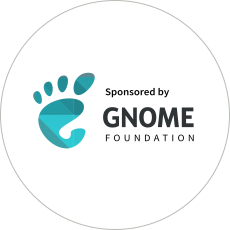Last month I was fortunate enough to be able to attend GUADEC 2022 in Guadalajara, Mexico, and overall it was a worthwhile experience where I learned a lot. Also it was the 25th anniversary of the GNOME project (give or take a month) and where better to celebrate than in the country where it all began?
My main contribution this year was to give a talk, “Integrating Progressive Web Apps in GNOME”, the recording of which you can find here. The attendance of it and engagement with it was pretty good so hopefully folks found it useful. Now with GNOME 43 around the corner, the revamped web app support should be coming to a distribution near you soon so you can see for yourself in case you haven’t been adventurous enough to try it out in GNOME OS Nightly!
A few days later into the conference and kind of at the last minute (just the day before) I organized a Flatpak/Portals BoF that took place on Saturday. It was hybrid both online and in-person and pretty well-attended in both mediums. As with past such meetings, there’s always much more to discuss than there’s time for, and perhaps that means we should do more of them. But in any case there were some productive discussions on camera portals and some triaging of open issues and pull requests of Flatpak, which is imminently due for a 1.14.0 release.
Other than that I enjoyed several of the presentations; here are some highlights:
- Sebastian Wick’s talk: “HDR? in GNOME?” which taught me a few things about color science and how complicated the problem is of rendering colors properly.
- Federico Mena Quintero’s talk: “Paying technical debt in our accessibility infrastructure” which included some really neat graphs showing codebase evolution (and stagnation) over time.
- Rob McQueen’s talk: “The case for Internet autonomy (and how GNOME can help)”
- Robin Tafel’s keynote: “Peeling Vegetables and the Craft of (Software) Inclusivity”
- Philip Withnall’s talk: “Reworking threading in gnome-software” which indirectly inspired a conversation in the #epiphany channel about the pros and cons of different languages Epiphany might use, the benefits of good support for asynchronous patterns at the language level, and the need for memory safety.
- Tobias Bernard’s talk: “Post-Collapse Computing”, in which there’s a mention of how useful it could be to have support for offline app updates and installs in upstream GNOME Software (since perhaps we won’t always be able to rely on good Internet connections).
- David King’s talk: “Cheese strings: Webcams, PipeWire and portals” in which I learned about the complexities of handling multiple webcams on one device, and that webcams can also have infrared video feeds not just visible light.
- (and many more)
I also was really happy to meet several people I had before only interacted with online; perhaps that’s even the best thing about conferences.
Finally, thank you to the GNOME Foundation for sponsoring my attendance.
